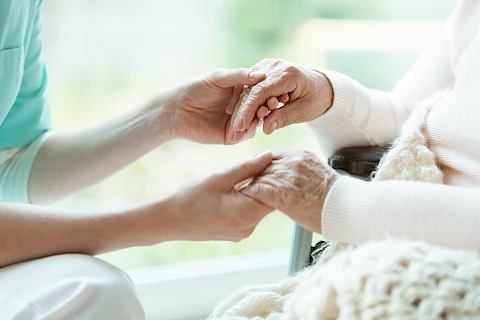
Alzheimer's disease is a progressive neurological disorder that affects seniors' memory, thinking, and behavior. It is the most common cause of dementia among older adults. With no current cure, it is vital to raise awareness and provide support for those affected. This makes World Alzheimer's Month, held every September, incredibly important.
Senior Helpers Memphis will offer guidance on recognizing early signs of Alzheimer's, understanding treatment options, and finding resources for seniors and caregivers.
Recognizing Early Signs of Alzheimer's in Seniors
Identifying Alzheimer's in seniors can be challenging, yet it is necessary for managing the disease effectively. Here are some early signs to look out for:
- Memory loss affecting daily life: Forgetting recently learned information or important dates, or repeatedly asking for the same details can be an early sign of Alzheimer's.
- Challenges in planning or solving problems: Difficulty in working with numbers, following a recipe, or keeping track of monthly bills could indicate early Alzheimer's.
- Difficulty completing familiar tasks: Trouble driving to a familiar location, organizing a grocery list, or remembering the rules of a favorite game might be cause for concern.
- Confusion with time or place: Losing track of dates, seasons, and the passage of time; or forgetting where they are or how they got there can signal the disease.
- Changes in mood and personality: Seniors with Alzheimer's might experience rapid mood swings, and become confused, suspicious, depressed, fearful, or anxious.
Treatment Options for Alzheimer's
Although Alzheimer's has no cure, several treatments can help manage its symptoms. Medications like cholinesterase inhibitors and memantine can temporarily reduce cognitive and behavioral symptoms. Non-drug approaches are equally important. Cognitive stimulation through activities like puzzles, reading, or memory games can help keep the brain active. Regular physical activity, on the other hand, can boost seniors' moods and maintain physical health, potentially delaying worsening symptoms. Maintaining social connections through clubs, family gatherings, or volunteer work can provide emotional support and improve quality of life.
Early diagnosis and intervention are extremely important. These allow seniors and their families to plan for the future, start treatments early, and find support services that significantly improve their quality of life.
Resources for Seniors and Caregivers
Living with Alzheimer's can be overwhelming, but numerous resources are available to help seniors and caregivers. The Alzheimer's Association offers a 24/7 helpline (800-272-3900) and has local chapters in Tennessee. Websites like Alzheimer's Association and Alzheimers.gov also offer comprehensive information about the disease, including tips for caregivers.
For those needing a break, Senior Helpers Memphis provides respite care, ensuring seniors continue to receive care and companionship while providing caregivers much-needed rest.
Approaching Difficult Conversations
Talking about Alzheimer's can be challenging but is necessary for the well-being of seniors and their families. To approach these conversations effectively, start by gathering information and preparing emotionally. Choose a quiet, comfortable place and a time when everyone is calm and free from distractions. Be straightforward but compassionate about the diagnosis and what it entails. Encourage open communication, allowing family members to express their feelings, ask questions, and offer support. If conversations become too challenging, don't hesitate to consult a healthcare professional or counselor for guidance.
We're Here for Seniors Living With Alzheimer's
If you or a senior loved one has recently received a diagnosis, you're not alone. Contact us at Senior Helpers Memphis for personalized in-home care and support in Memphis, Bartlett, Germantown, and Collierville. We're here to help you and your loved ones face Alzheimer's with compassion and expertise.